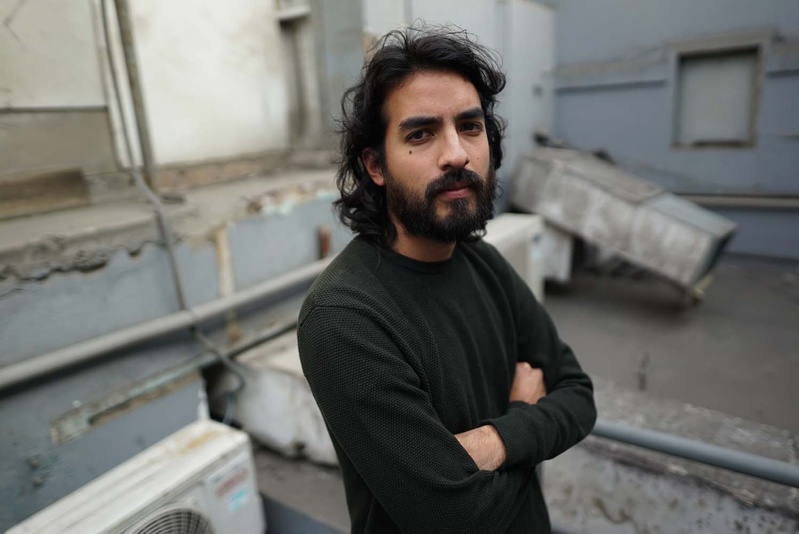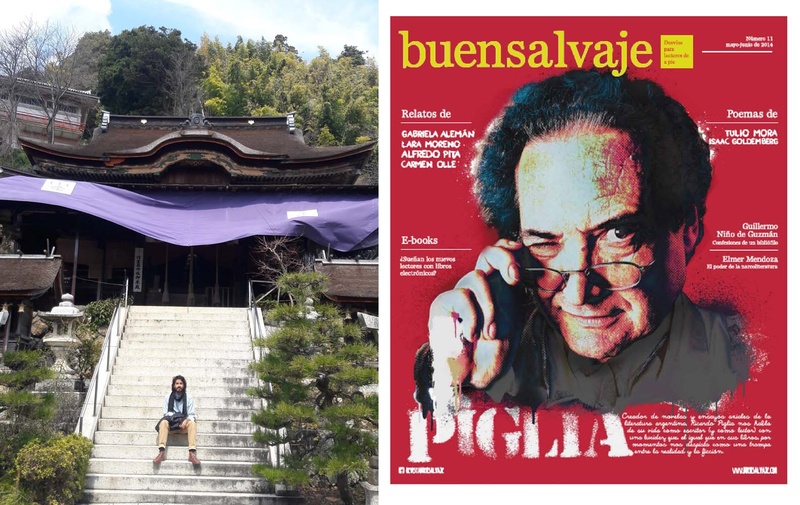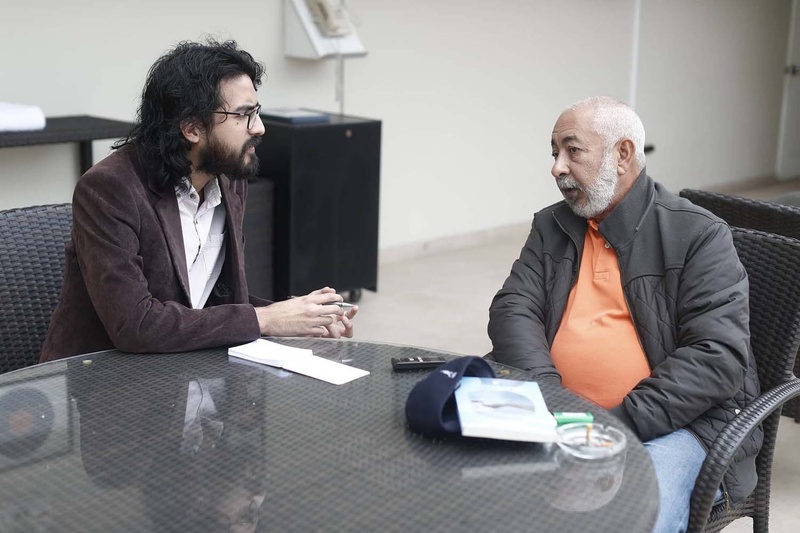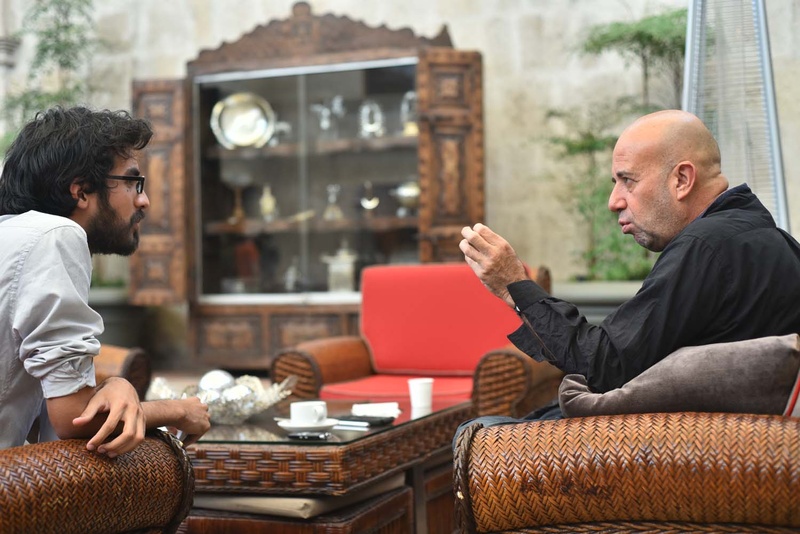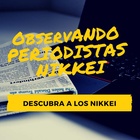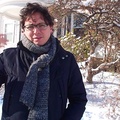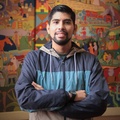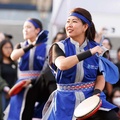Many times we think that identity is something we see in the mirror. The Peruvian journalist Juan Carlos Fangacio Arakaki (Lima, 1988) says that he looks Palestinian because of his long beard and long hair. When he traveled to Japan to visit his mother, who went to work in Nagahama when he was a child, he felt what many Nikkei feel when they are in Japan: that they are not much like the Japanese, despite having the same surnames.
In Lima, he never had much contact with other Nikkei. He grew up in Breña and did not study at a community school. He did not think much about his origins, on the one hand Italian and on the other Japanese, until his mother, Rosa Arakaki, left to work like many descendants of Japanese who took advantage of the opportunity in times of the severe economic crisis of the ninety.
“I wrote her letters by hand and she responded telling me things about Japan and what her life was like there. Until now I remember taking them to the post office,” says Juan Carlos, who was searching the Internet for photos of Nagahama and Lake Biwa, the largest in Japan, in front of which his mother lived. Sitting outside the editorial office of the newspaper El Comercio , in the center of Lima, Fangacio says that this correspondence with his mother may have been the germ that inoculated him with journalism.
Journalism and literature
When he left school he wanted to study literature but he had to face a difficult decision. His older sisters had gone to work in Japan, following their mother, and he was next in line before José Luis, his younger brother. But he decided to stay. He began studying journalism at the University of San Martín de Porres, and worked in the media from the first cycles. “A professor, Carlos Batalla, told me that they were looking for an editor.”
There, in a news agency that provided content for the El Comercio Group, he started in this profession, later moving to the newspaper Perú 21 , the film magazine Godard! , the literary magazine Buen Salvaje and the magazine Poder , about economics and business. Juan Carlos recognizes that it was a sacrifice to work during the day and study at night, but he adapted because it was something he liked to do. “I always liked to write, especially about cultural topics.”
In Buen Salvaje , an independent and free magazine, founded in 2012 by the Solar publishing house, he wrote several reviews before becoming deputy editor in 2014, a job that required coordinating with dozens of journalists, writers and critics from Peru and the region. “We seek to give value to literature without doing something academic.” An ambitious project that opened subsidiaries in Costa Rica, Colombia and Mexico, and that led him to continue writing about culture.
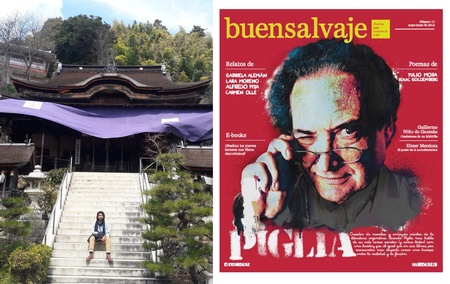
Literature and culture
In 2015, the director of Buen Salvaje , Dante Trujillo, asked him to collaborate in the supplement El Dominical , of the newspaper El Comercio , where he was editor. There, Juan Carlos poured his experience into articles on cinema, art, literature and other topics that were to be expanded much more when, the following year, he became part of the Luces team, the culture and entertainment section of El Comercio , along with to other renowned journalists of the medium such as Catherine Contreras and Enrique Planas.
“People are afraid of culture because they see it as very solemn or snobbish, when in reality culture is a way to expand your world.” For El Comercio , Fangacio Arakaki has written about music (from Nirvana to the Peruvian band We the Lion), cinema (from Werner Herzog to King Kong ) and arts such as painting, theater and comics. And, above all, literature, including a section in the newspaper called “Pisapapeles”, with recommended readings.
He has interviewed writers such as Ricardo Piglia, Cees Nooteboom, Mario Bellatin and, recently, the Cuban Leonardo Padura 1 . Doing cultural journalism has been for him a way to have great teachers in front of him. Or next door, since he appreciates the lessons he has received from journalists and editors such as Dante Trujillo, Claudio Cordero, Jorge Frisancho, David Rivera and Enrique Planas. Perhaps for this reason, he accepted for a time to be a journalism professor at the university where he studied. “Teaching is a lot like doing journalism, it's about sharing what you learn.”
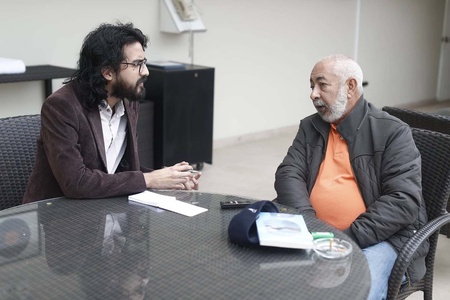
Culture and Japan
If culture is his world, as he says, journalism led him to reconnect with his Japanese roots, through artistic references such as the poet Matsuo Bashō, the painter Katsushika Hokusai or the filmmaker Akira Kurosawa. “My taste for Japanese culture was something acquired from what my mother told me in her letters and on the phone,” he says. This is also how he became interested in Japanese cuisine, sumo and origami.
In 2017, Juan Carlos and his brother José Luis traveled to Japan for a family reunion. This is how they got to know Tokyo, Kyoto and Nagahama. In the latter, Juan Carlos visited Chikubu Island, which is located in the middle of Lake Biwa, “an island within another island,” he says, and the landscape that his mother had in front of for 20 years. “Getting to know that place was very special for me,” he says, who spent about a month in Japanese lands.
Time, which says little about the sensations that can be experienced in a place, cannot explain what it meant for the journalist to receive from his mother those letters that he had written to her as a child. “Seeing them was like taking a trip back in time,” he says, adding that he has several notes, memories and images of those two moments that make it enough to write a book. “Writing is an instrument to understand myself.”
Japan and Peru
If as a child he had not had contact with his Japanese roots, journalism led him to have a reunion with the Nikkei, an identity that seems to have come to him through cultural transfusion, through his readings and experiences. A rediscovery that has led him to become interested in figures that he admires beyond being Nikkei, such as the poet José Watanabe, the painter Tilsa Tsuchiya and the narrator Augusto Higa.
Of all the interviews that Juan Carlos has done, his conversation with Higa has a very personal issue. On one occasion when his mother came to visit and he asked her about her life in Japan, she gave him an old book that talked about Nikkei immigrants. That book was “Japan doesn't give you two chances,” which has just been republished after 25 years and was the reason for the meeting where Augusto told him: “the whole idea I had of Japan was my parents' nostalgia.” 2
Juan Carlos no longer needs to write to his mother, a few weeks ago she just returned to Peru to stay and she surely read that interview in the newspaper where the Nikkei writer seems to talk about both of them. Meanwhile, the young journalist's notes are still waiting, among the newspaper's committees, for a final edition so that someone else can review his story.
Grades:
1. Juan Carlos Fangacio Arakaki, “ Leonardo Padura: 'The most terrible thing about death is the baseball games that we are not going to see' ” ( El Comercio, August 5, 2019)
2. Juan Carlos Fangacio Arakaki, “ Augusto Higa: 'My idea of Japan was the nostalgia of my parents, a non-existent country' ” ( El Comercio, July 25, 2019)
© 2019 Javier García Wong-Kit


